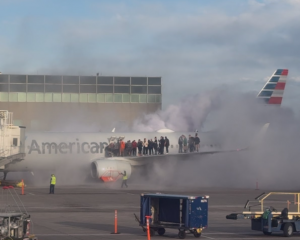
Kabul Golf Club's nine holes are a zigzag of rocky dirt fairways, its greens a brownish mix of oil and sand.
But it is exclusive. More people can claim to have crested Mount Everest than can say they've played golf in Kabul. Not even Patrick Reed, the 23-year-old who won the Cadillac Championship this month, has teed off there.
That kind of bragging right - and the security required to hit the links in one of the world's most dangerous areas - comes at a price. A new Miami company is offering extreme-golf adventures to those willing to pay $40,000 to $80,000 for a five-day excursion.
"Our clientele are people who have $10 million-plus in assets, which is a growing number now, and who are looking for the experience of a lifetime," Cavalry and Co. co-founder Ross Thompson said. "We're talking about people 35 to 55 who have made their money and still have some lead in their pencils, so to speak."
The trips, scheduled to begin in May, include ritzy accommodations at a Dubai resort where rooms start at $1,400 a night.
Cavalry clients will play rounds at coveted Dubai courses, like the Greg Norman-designed championship Earth Course at Jumeirah Golf Estates and Address Montgomerie, where the par-three 13th hole boasts the world's largest putting surface.
Beyond golf, Cavalry can arrange side excursions in the United Arab Emirates, including skydiving, weapons shooting, dune surfing, deep-sea fishing and shopping.
"These are not designed to be strictly guys' trips," Thompson said. "It could be a couples' vacation where the women lay out on the beach while the guys play golf, and everyone's back together for a five-star dinner at night."
That sort of golf-and-glamour trip would be at the low end of Cavalry's rate card. Add an adventure to Kabul or Beirut ("Tee Off in Hezbollah's Back Yard," the company's website pitches), and the price can double.
Cavalry will fly clients from Dubai to Kabul or Beirut in a private jet. From Kabul, a decommissioned Soviet Mi-8 military helicopter will whisk golfers to and from the Kabul Golf Course, where armed guards will keep watch over their round.
"In Kabul, it's very dangerous to travel by road, which is why the helicopter is necessary," said Cavalry co-founder Horacio Ortiz, a veteran security consultant and military-trained sniper. "The airport only operates during the daytime, so we have to get in early and out before sunset."
Kabul Golf Club, located in Qargha, on the city's western outskirts, is an unforgiving course maintained by director and pro Mohammad Afzal Abdul. He reopened the club in 2004, after a quarter-century of near-constant wars. Youthful caddies lay down small patches of artificial turf so duffers don't tee off on rocks. Remnants of Taliban violence remain visible.
"You can see on the course where mortars have exploded," Ortiz said. "Sometimes you don't know whether to take out a golf club or a shovel."
Thompson said he hopes Cavalry's business in Kabul will help Abdul afford the irrigation system and landscaping his course needs to go from lacking to lush.
Beirut's Golf Club of Lebanon offers a much more traditional experience: neatly manicured fairways; a cool Mediterranean Sea breeze; a fancy clubhouse restaurant. It just happens to be in the home of one of the world's most violent militant groups.
"We will have no problems in Beirut," Ortiz said. "We have good, trustworthy contacts there. We can even spend the night there if clients want."
Ortiz, 60, and Thompson, 28, met through their work in private investigations and executive protection, which has taken them from South Florida to Latin America, Europe, Africa and the Middle East.
Ortiz will lead Cavalry's trips, ensuring clients' safety along with others who have weapons and combat experience. Thompson is handling business development, including scouting potential destinations in the Congo and Bolivia.
The U.S. State Department has warnings for Americans traveling to Afghanistan and Lebanon. "Kabul remains at high risk for militant attacks, including vehicle-borne improvised explosive devices, direct and indirect fire and suicide bombings," the government notes. In Beirut, three suicide bombings in December and January killed 17 people and injured more than 150, the department reported.
"Look, these are risky places," Ortiz said. "I cannot say nothing bad ever happens in Kabul or Beirut, but we will take every precaution. We will make sure not to announce ourselves to draw unwanted attention. Our job is to ensure safety and fun."












